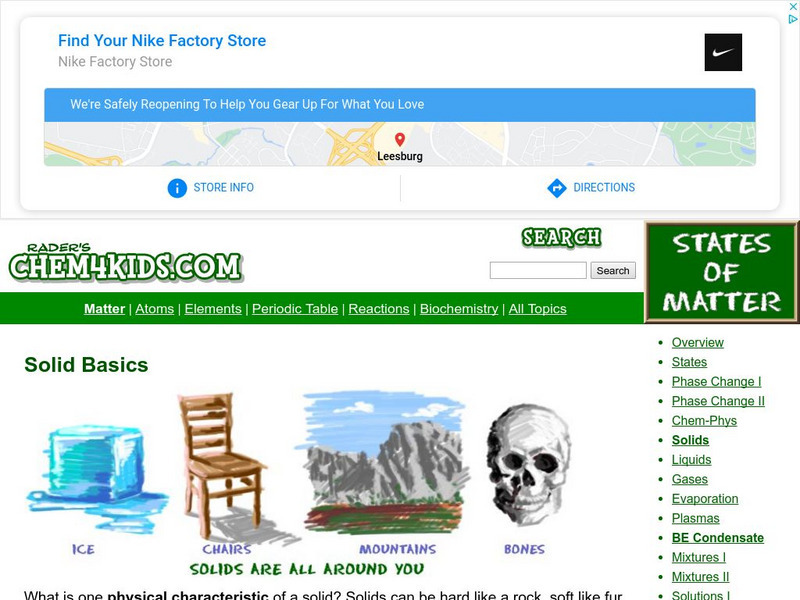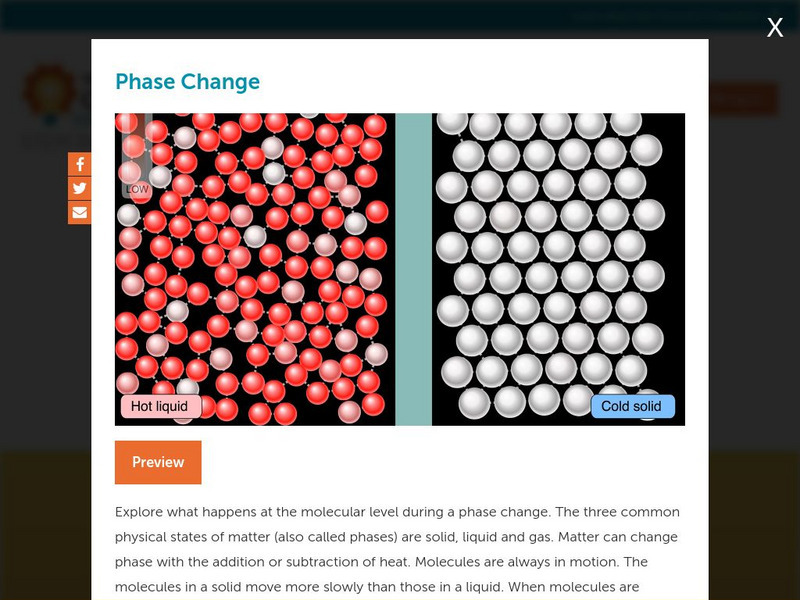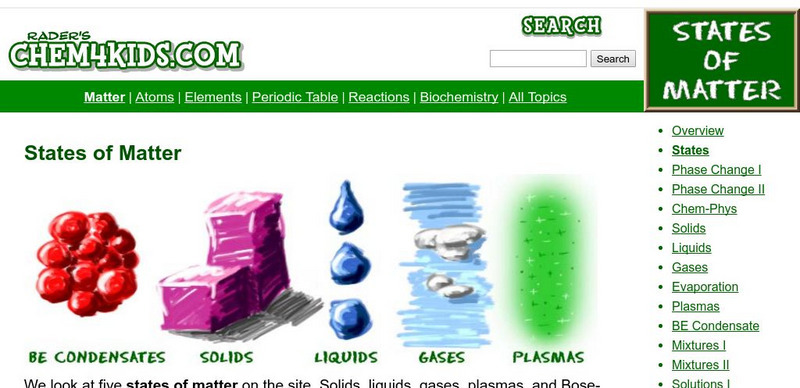Exploratorium
Bubble Suspension
Create a cushion of carbon dioxide gas to float some soap bubbles on. Many concepts can be demonstrated through this activity:
Carbon dioxide gas is more dense than air
Bubbles are semipermeable, allowing only carbon dioxide to diffuse...
Curated OER
WS 8.7 Solutions, Colloids and Suspensions
In this solutions, suspensions and colloids worksheet, learners use diagrams to show how particles are different in each of these mixtures. They also distinguish between characteristics of each of these types of mixtures and categorize...
Curated OER
Understanding Chemical Equations
In this chemical equations worksheet, students identify the reactants and the products, state what phase each is in, and state the mole ratios of all the products and reactants. Students complete 10 problems.
Curated OER
Ar.... What Gives?
Students investigate the properties of air through inflated objects. In this physical science instructional activity, students examine gas as a state of matter. Student push on inflated objects and note the space the gas has taken up...
Curated OER
Liquids in Bottles
Students investigate different liquids to develop their concept of a liquid. They work at a center to tip, swirl, shake, roll, and otherwise investigate seven liquids in small, clear plastic bottles: plain water, corn syrup, liquid...
American Chemical Society
Middle School Chemistry: Air: It's Really There
Investigation shows that gas takes up space and has mass, and that the motion of gas molecules is affected by heating and cooling.
American Chemical Society
Middle School Chemistry: Changing State: Freezing
Learners investigate how low temperature causes water vapor to condense into a liquid and then freeze to form a solid.
American Chemical Society
Middle School Chemistry: Changing State: Melting
Discover the concept that energy transfer and molecular motion cause the change in state from a solid to a liquid. Also compare state changes of water to the state changes of other substances.
PBS
Pbs Learning Media: Mystery Mud: Exploring Changes in States of Matter
Join a group of middle-school students on a visit to a laboratory at the Massachusetts Institute of Technology, where they experiment with "mystery mud" and learn about the relationships between magnetism, particle motion, and changes in...
University of Colorado
University of Colorado: Ph Et Interactive Simulations: States of Matter
Watch different types of molecules form a solid, liquid, or gas. Add or remove heat and watch the phase change. Change the temperature or volume of a container and see a pressure-temperature diagram respond in real time. Relate the...
American Chemical Society
Inquiry in Action: From Liquid to Gas to Solid
What causes frost to form on the outside of a cold container? In this activity, students will see that the liquid water can change state again and freeze to become ice.
University of Colorado
University of Colorado: Ph Et Interactive Simulations: University of Colorado: States of Matter: Basics
An interactive simulation will heat, cool and compress atoms and molecules. Watch as they change between solid, liquid and gas phases. Recognize that different substances have different properties which will affect the temperatures for...
Chem4kids
Chem4 Kids: Plasma
Here you can learn all about plasma. Explore what plasma is, its basic characteristics, and how plasma is created.
Chem4kids
Chem4 Kids: Solids
Chem4Kids provides an overview of the solid state of matter that explores the characteristics of solids as well as how matter in other states becomes a solid.
Concord Consortium
Concord Consortium: Stem Resources: Phase Changes
This activity reviews of states of matter, then relates them to atomic movement as it is affected by attractions between atoms and the addition of energy. Latent heat and evaporative cooling are also topics covered. Multiple-choice and...
Other
Space Weather Center: Amazing Plasmas
You've seen numerous examples of plasma throughout your lifetime and may not have even known. Plasmas are one of the four states of matter and are often present in our atmosphere. Interactive games, photographs and a focused look on this...
American Chemical Society
Middle School Chemistry: Changing State: Evaporation
Students build a model of a water molecule and design an experiment to see if adding energy affects the rate of evaporation.
Children's Museum
The Children's Museum of Indianapolis: Tie Dye Paper
Learners characterize materials by their state of matter and then combined materials to create a piece of colorful, tie dye-esque paper.
Other
Plasmas International: Perspectives on Plasmas
Great introduction site, overview of plasmas and plasma science with some good information and great pictures.
Other
Southwest Research Institute: The Plasma Universe
Two page introduction to the state of matter. Good site!
Chem4kids
Chem4 Kids: States of Matter
This resource explains the five states of matter and methods of changing from one state to another.
University of Florida
Chem. 2041 Lecture Notes: The Forces Between Molecules
A discussion of the variety of forces which hold molecules together. The relative strengths of these forces for the various states of matter is discussed. The effect of such forces on the boiling points and other phase change...
Concord Consortium
Concord Consortium: Molecular Workbench Showcase: Chemistry, States of Matter
See how gas, liquid, and solid molecules react to external pressure in this simulation. Also see a model of intermolecular motion through elliptical particles.
Other
Plasmas International: What Are Plasmas?
Good site with graphics and background on the 4th state of matter.



















